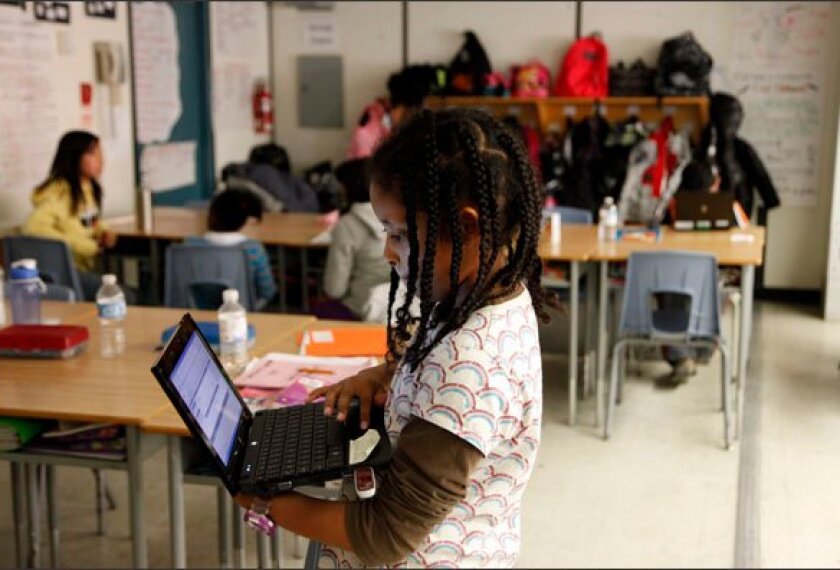Virtual World of Learning
E-Learning Is Evolving Around the Globe, Prompting U.S. 69传媒 To Forge International Partnerships
February 1, 2012
The United States has many lessons it can learn from how other countries are deploying virtual education and how it might partner up with those countries in different ways to offer a wider range of educational and cultural experiences to its students. This report, part of Education Week鈥檚 ongoing series on virtual education, draws out many of those lessons to be learned from other countries and highlights some of the more distinctive virtual education partnerships emerging between schools in the United States and those outside its borders, while noting the difficulties that arise for educators and schools when taking on such initiatives.
- School & District Management U.S., Chinese 69传媒 Build Virtual Ed. PartnershipsSeveral schools aiming to better prepare students for a global economy and foster cultural understanding between the United States and China have established online student exchange programs.School & District Management U.S. Virtual Ed. Companies Court Global ClientsBut, despite the flexibility of online delivery, barriers due to geography and regionalism are slowing plans for future international growth.Federal Quality Concerns Slow E-Learning Growth in ChinaThe Chinese government has set a goal of creating digital learning environments for all the country's students by 2020, but the growth of virtual education has lagged behind that of the United States.Federal Europe Seen Leading the Way in Hand-Held ComputingWhile hand-held mobile learning is viewed in the United States as a recent trend, its roots go further back in the United Kingdom and Western Europe, revealing different approaches.Federal Virtual Teachers Deploy Skills Across CountriesWhile there are drawbacks鈥攕uch as technological glitches that interrupt instruction鈥攐nline educators say the opportunities to build alliances with colleagues worldwide allow them to strengthen their own teaching.Federal Virtual Ed. in Canada Favors Centralized ProgramsThe country's e-learning initiatives are more standardized than those in the U.S., and they tend to shy away from using private companies to deliver content.Federal Canadian Virtual Ed. Dips Into For-Profit RealmWhile there may not be much involvement by private companies in the Canadian online education sector, that doesn't mean the idea of earning profits in this arena is being ignored.Federal Mobile Devices Address Tech. Equity in AfricaThe use of mobile technology and online content on the continent in various forms is gaining steam as a way to bypass some countries' most significant education hurdles.Federal International Initiatives Fuel Growth of Open Ed. ContentExperts say the real power of open education resources comes not from the fact that they are free, but from the ability to customize the content.Federal U.S. 69传媒 Forge Foreign Connections Via WebAmerican students are teaming up online with classrooms around the world to learn valuable lessons about current events, economic trends, and cultural norms.



